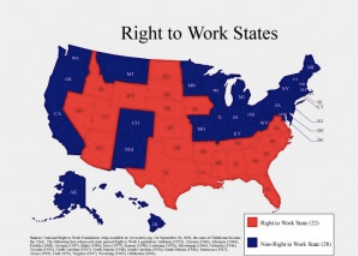. . .
Take one example, covered a few months ago in a striking Times essay: the decline in the fortunes of truck drivers, whose pay used to make them members of the middle class. No more: Their real wages have fallen about a third since the 1970s, with most of the decline taking place during the Reagan years.
Now, globalization and technology haven’t destroyed trucking jobs; on the contrary, the industry is facing a labor shortage. What happened to truckers was, basically, the collapse of their bargaining power due in part to a changed ideological climate — not least at the National Labor Relations Board — that encouraged private employers to fight unionization, and in part to deregulation that undercut the position of unionized firms.
Take another example, at the opposite end of the spectrum: Does anyone doubt that financial deregulation played an important role in surging incomes at the very top of the income distribution?
Which brings us back to Trump and the effect he’ll have on America’s working class. Right now it looks as if he may have much less impact on taxing and spending than most people expected. But other policies, often made administratively by federal agencies rather than via legislation, can matter a lot.




